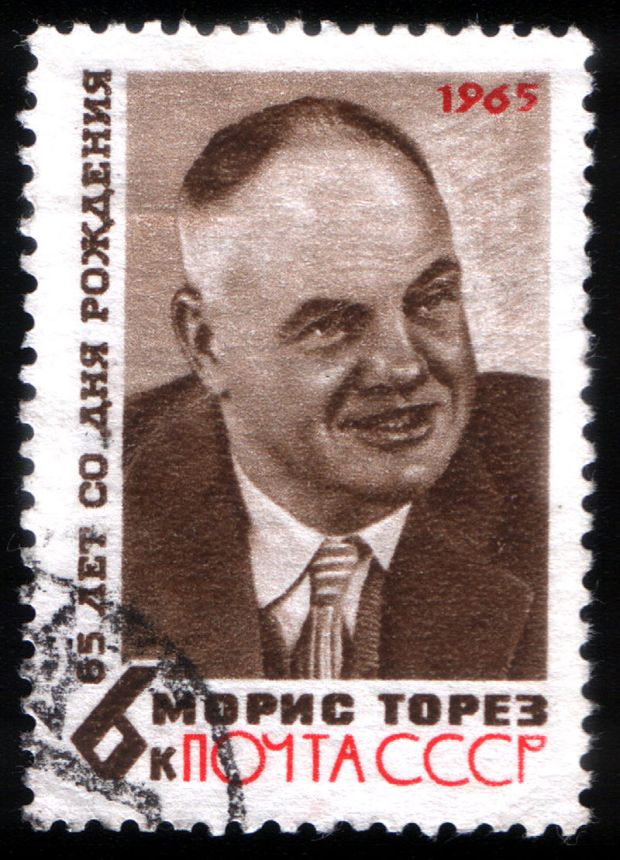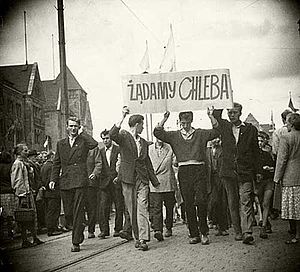Toeing the line? French communists, 1956, oral histories

In this year of presidential elections, Fiona Haig talks about her article ‘Democratic centralism or “centres” of power in the French Communist Party Var Federation? A glimpse of party culture in 1956′ 24:1 (2016)
What does this article tell readers about modern and contemporary France?
French politics without the presence of the French Communist Party (PCF), in some shape or form, would be unthinkable. It is an intrinsic if divisive element to the national political psyche. For many, it is a symbol of the French radical revolutionary tradition. Whilst there has been an overall decline in the PCF’s electoral support at national level since its heyday in the early post war period when it enjoyed almost a third of the vote, it remained an influential force in national politics, with a strong base in local politics. Recent attempts to modernise the party including Robert Hue’s mutation and Marie-George Buffet’s policy of forming of broader coalitions with the non Socialist Left and other progressive movements, have resulted in starker divisions between its ‘orthodox’ and ‘reformist’ currents that started to form in the late 1950s. Notwithstanding, the PCF is still a key player on French Left, if in its current role as a leading component of the Front Gauche. Its fundamental project remains unchanged, and that is to challenge and provide what it sees as a more equitable and sustainable alternative to global capitalist / neo-liberal economic relations and effects.
This article focuses on the crucial post war period in which the non-ruling parties were attempting to establish themselves vis-à-vis their respective political systems, within a developing cold war context. It looks at the system of internal organisation in operation all communist parties at this time; democratic centralism. It was predicated on the Leninist-Bolshevik model of the Communist Party of the Soviet Union (CPSU) and its purpose was to maintain a ‘one party line.’ It represented a party culture that to a large extent dictated its fortunes. Although it was officially abandoned by the PCF in 1994, it lives on in the party as an exemplar of a consensus making mechanism against which other systems and practices are compared, and not always positively. In examining this key indicator of party culture as it functioned in a regional party federation, and from the perspectives of party members who at the time were active at all levels of that regional party structure, the article adds to understandings of the PCF’s post war trajectory, and also therefore, to its current role within French politics.
2. What authors, concepts or theories does you article draw upon? What topics or issues does it address? How is its argument different from those previously made in the field?
The PCF was one of the largest non-ruling parties in the post war period and the most important in diplomatic terms; it has consequently received a vast amount of scholarly attention within the field of communist studies. The theory that the PCF was the most sectarian, authoritarian and Sovietophile of the Western communist parties was first advanced by Annie Kriegel in the 1960s, and although it has since been revisited by herself and others from diverse standpoints according to changing political contexts and shifting interpretive frameworks, its essential propositions are still considered valid. The article therefore stands partially as a test case for that theory inasmuch as it evaluates the nature and extent of party discipline in a party organisation within the national party structure, within the wider movement, at a decisive moment in its history.
Concepts addressed in the article include that of human agency. Intervention in the political (historical) process was understood according to Marxist-Leninist theory in terms of class struggle. Individual or contingent actions or interests were considered a social democratic fallacy, and therefore ineffective.
It would be logical to suppose therefore that as the most Soviet orthodox of the non-ruling parties, the PCF would have implemented an internal system of organisation that precluded or overrode individual or ‘group’ intervention. Nonetheless, the article reveals that a distinctly more nuanced situation existed in the Var Federation. Whilst there was a fundamental understanding within the regional party membership that the only legitimate and effective political force was that of a politicised and disciplined collective, there were in fact pockets of communist ‘authority,’ ‘representation’ and ‘expression’ across the regional party structure.
Ultimately nevertheless, democratic centralism prevailed, especially in formal situations and at difficult moments. However, and importantly, this was due to the conscious decisions of party members to observe party discipline in the interests of the cause. This belies the idea of communist commitment at this time as uncritical. These internal tensions and articulations of communist authority evidenced in the party federation in question at this conjuncture in many respects foreshadowed later currents and then factions within French communism that coalesce around the Marxist-Leninist orthodox position and those of the various exponents of reform.
Existing works on the PCF deal either with macro politics and political elites; local communist party organisation, policies and strategies per se or in relation to a particular function or area of activity; or the PCF’s level of implantation in French politics and society vis-à-vis its allegiance to the international communist movement. The subject of democratic centralism within the party at national, regional or local levels, has tended to be addressed in the context of wider discussions, that is to say, in relation to other issues. The article addresses this key aspect of functional communism explicitly and systematically by way of a micro political case study that looks closely at its workings at local and regional levels and at responses to that mechanism on the part of ordinary communists, whilst situating its findings within the national and international contexts.
3. What kinds of methodologies did you use?
The approach adopted for the original research was regional and bottom-up. The regional focus allows the democratic centralist system in operation across the national party structure to be tested at what was potentially one of its weakest points. Inconsistencies in any system are more likely to occur where there is physical distance from a central hub of authority, regulation and administration. The periodisation of the research is also significant in that 1956 was a turning point in the cold war, and as such punctuated by a series of events that were highly significant to communists everywhere. Those conditions serve to isolate such phenomena as party discipline, thereby allowing them to be analysed with greater precision. The principle sources for the research were personal interviews with a core sample of twenty five communists and former communists who had firsthand experience of the issues. The interviewees constitute a diminishing resource, and their testimonies provide the type of context rich information that is rarely found in documents. Nonetheless, testimonies were cross-referenced with an extensive collection of local, regional and national archival sources, other forms of written evidence, photographs and artefacts, in order to offset the inherent bias present in any historical source. The interviewees were selected with a view to obtaining as representative a sample as possible of the regional party membership in 1956. Not all of them knew each other, the regional membership running at approximately 5, 000 at the time, therefore potential problems linked to networks of interviewees and the coordinated responses this can produce, however unwittingly on their part, was minimised. None of them had previously been interviewed in relation to the subject matter in question, and therefore potential problem of rehearsed responses was similarly minimised.

4. How does this article fit into your research more broadly?
The article flows from a PhD thesis that looked at: ‘Reactions to the Soviet interventions in the Hungarian Revolution of 1956, amongst French and Italian Communist Party members in the shipbuilding towns of La Seyne and Monfalcone’ (University of Portsmouth). Other articles that draw on aspects of the original research and that address the PCF either in itself or as part of a comparative study include:
‘De-stalinisation? Grassroots responses to the XXth Congress of the Communist Party of the Soviet Union in France’s ‘Var rouge,’ in 23:3 (2015) of Modern and Contemporary France.
‘The Poznan uprising of 1956 as viewed by French and Italian Communists‘ in 18:2 (2016) of Journal of Cold War Studies.
I am currently finalising an article for publication that looks at the striking differences in the day to day implementation of democratic centralism, and at the differing understandings of the system, in the two federations. I am also working on an article that examines the roles of intellectuals, religion and women in those organisations. And I plan to write about the nature of the core communist principle of ‘internationalism’ as evidenced in the contemporary practices and behaviours of the two regional party leaderships and the wider memberships.
Another avenue I plan to take is in writing a series of articles with a methodological focus that will contribute to current debates regarding qualitative research methods, taking the two case studies of the original research as practical examples. I plan to look at theoretical and procedural questions relating to oral history; the role, purpose and practice of micro history; and the cross-cultural comparative approach.
My future research plans include continuing to work on the immediate and early post war history of the communist movement in the Province of Gorizia in the then Venezia-Giulia region of north east Italy. Although directly relevant to the development of Italian communism, that particular history has been largely overlooked, certainly in the English historiography. That area of enquiry would also leave the way open to thematic comparisons with contemporary situations within French communism.
Hero Image: Maurice Thorez, leader of the PCF 1930-1964, on a USSR stamp. From Wikimedia Commons.
